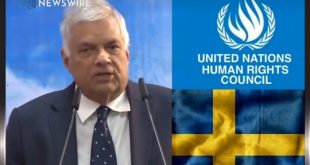 (3).jpg)
"I was kidnapped on June 3 last year (2009) in the holy city of Madina in a joint operation by the terror and abduction units of the American CIA and Saudi Arabia's Istikhbarat [intelligence agency]. They took me to a house located somewhere that I didn't know. They gave me an anesthetic injection. When I became conscious I was in a big [voice interrupted] towards America. During the eight months that I was kept in America, I was subject to the most severe tortures and psychological pressures by the American intelligence investigation groups.
"And the main aim behind these investigation teams and the pressure imposed on me was to make me take part in an interview conducted by an American media source and claim that I was an important figure in Iran's nuclear programme and I had sought asylum in America at my own will. And (to say) while seeking asylum I took some very important documents and a laptop with classified information on Iran's military nuclear programme in it to America from my country."
Hours after the Amiri video was posted on the YouTube, another video appeared on the website. This video, a high quality one, showed Amiri or a person resembling him making a contradictory statement. The person in the second video said: "I am in America and intend to continue my education here. I am free here and I assure everyone that I am safe."
He said he wanted to clear up "rumours," and denied having any political views or that he had betrayed his country.
When the dispute over who the real Amiri was and the authenticity of the videos continued, a third video appeared on June 29. The Iranian television telecast the video, again a poor quality one. In the video, Amiri cleared up the mystery. He said:
"I, Shahram Amiri, am a national of the Islamic Republic of Iran and a few minutes ago I succeeded in escaping US security agents in Virginia. Presently, I am producing this video in a safe place. I could be re-arrested at any time.
"The second video which was published on YouTube by the US government, where I have said that I am free and want to continue my education here, is not true and is a complete fabrication. If something happens and I do not return home alive, the US government will be responsible."
Common sense says either the first and the third videos or the second video should be a fake. To solve the mystery, Amiri appeared at the Iranian interest section of the Pakistan's embassy in Washington on Monday and repeated the allegations he made in the first and the third videos. He told the Iranian media by telephone that the US "sought to put a cap on the seizure while denying the whole case but eventually did not succeed."
"Since the release of my comments on the Internet, the Americans saw themselves as the losers in this saga," he said.
A question arises as to who produced the second video, the good quality one. It confirms suspicions that the CIA has been into the business of producing videos. If the CIA could produce an Amiri, why cannot it produce an Osama bin Laden? In the light of this video scandal, there is a strong possibility that at least some of the bin Laden tapes, especially the tapes which helped Bush to win the second term as president, were made in the United States of America.
There is little doubt that the Amiri affair was a huge diplomatic embarrassment to the United States. US officials were lost for words or faltered when they were asked about the Amiri affair.
US Secretary of State Hillary Clinton could only say, "Mr. Amiri has been in the United States of his own free will and he is free to go". Diverting from the question, she went on to berate Iran for holding three Americans and called for their immediate release.
US media reports quoted unnamed officials and security sources as claiming that Amiri, in fact, defected and was put into a programme similar to a witness-protection, but he later became concerned about his family in Iran, had a breakdown and decided to return to Iran.
Amiri arrived in Tehran yesterday and repeated the allegations which he made in the first and the third videos. He also claimed that Israeli officials were present when US officials interrogated him under psychological torture. He said the CIA offered him $ 50 million to in return for information and even threatened to hand him over to Israel for tougher interrogation. He denied he was a nuclear scientist and said he was just a "simple researcher".
There are more questions that beg answers in the Amiri episode.
The question to the Iranians: Why did they claim that Amiri was a nuclear scientist, if he is not?
The questions to the Americans: Did the CIA deliberately release Amiri to win the release of three Americans in Iranian custody? If Amiri was a high asset, why was there lax security that enabled him to escape? If Amiri had defected as the Americans claimed, why did not they get him to address a news conference as soon as he arrived in the US?
The Americans, it appears, are working hard to find answers. But their answers only generate more questions. The US is fast losing its credibility, even under Obama.
 Sri lanka Muslims Web Portal Diversity and Inclusiveness
Sri lanka Muslims Web Portal Diversity and Inclusiveness



